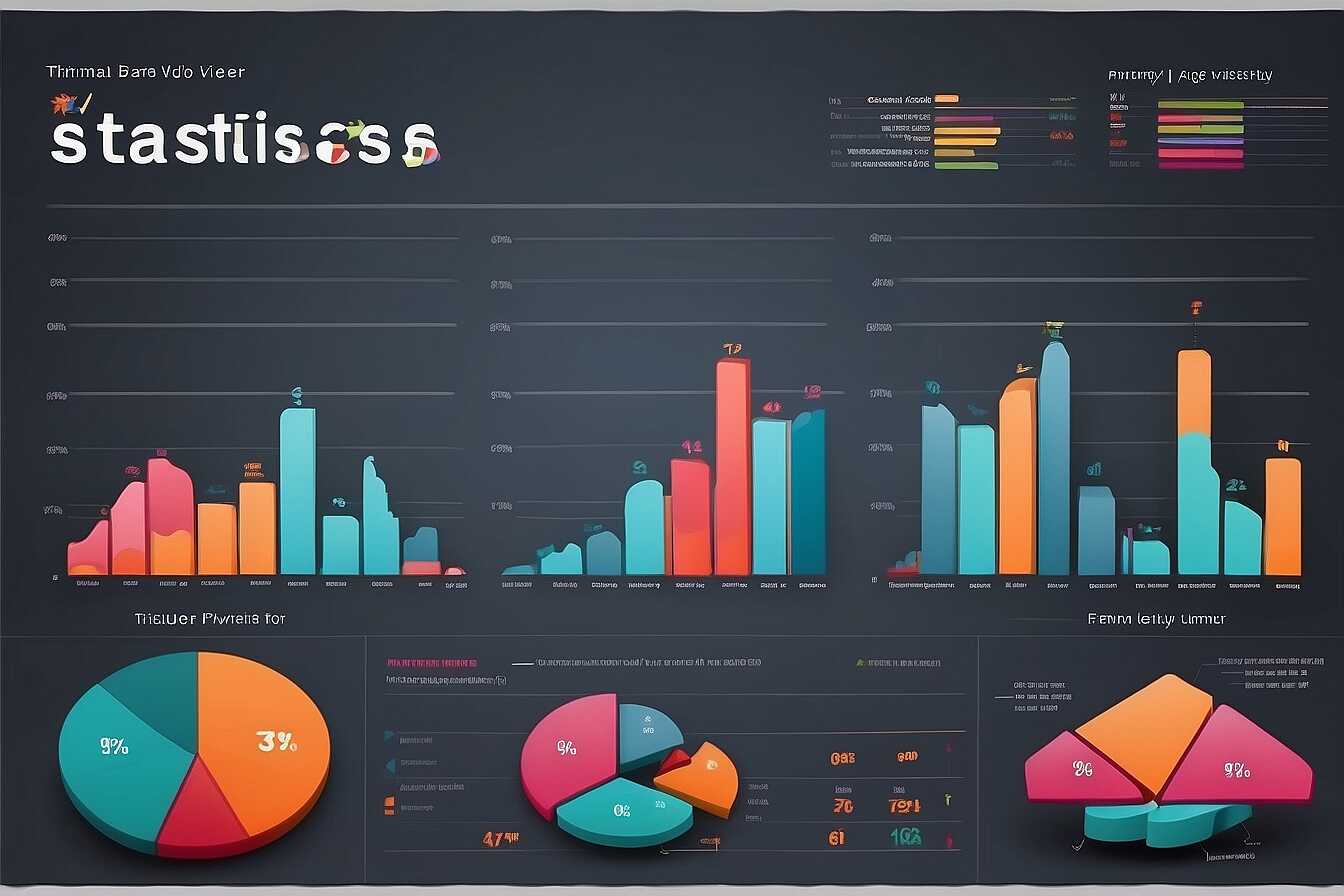Understanding the best schema markup practices is crucial for enhancing visibility in Bing search results. Schema markup helps search engines better understand your content, improving SEO performance and increasing click-through rates. At Metrics Rule, we focus on leveraging schema markup to deliver results for SEO professionals, digital marketers, and business owners alike. By implementing these strategies effectively, you can ensure your site stands out in Bing’s competitive landscape.
What Is Schema Markup and Why It Matters for Bing
Schema markup is a structured data vocabulary that helps search engines like Bing better understand website content. It provides key details about pages, such as reviews, events, and products, enabling Bing to display rich snippets and relevant information directly in search results. By using schema markup, website owners can enhance visibility, making their sites more attractive to users. Implementing schema can significantly improve click-through rates (CTR) and is essential for any business wanting to optimize their search engine performance and local SEO strategies.
How Does Schema Markup Enhance Bing Search Visibility?
Schema markup enhances Bing search visibility by providing precise information that search engines can easily evaluate. This structured data allows Bing to create rich snippets that showcase essential details, such as ratings and prices, directly in search results. Websites using schema markup often see a notable improvement in search engine indexing, making it easier for their content to be crawled and ranked. Businesses leveraging schema markup are better positioned to attract clicks from potential customers, as rich snippets can increase interest and engagement.
How to Implement Basic Schema Markup on Your Website
To add schema markup to your website effectively, you need to follow several key steps. First, identify the type of content on your page, such as articles, products, or events. Next, select the relevant schema type from the Schema.org vocabulary. Use a structured data markup generator, such as Google’s Structured Data Markup Helper, to create the code. After generating the code, add it to your website’s HTML. Use the Google Rich Results Test or Schema Markup Validator to test and ensure that your markup is correctly implemented. This method helps increase Bing search visibility and improves SEO performance by enabling rich snippets to display.
Understanding Different Schema Types for Bing
When optimizing for Bing, understanding different schema types is essential. Popular types include Organization, Person, Product, Article, and Local Business. Each schema type provides structured data that enhances how your website appears in search results. For instance, using Product schema can improve e-commerce visibility by displaying pricing and availability directly in the search results. Additionally, Local Business schema helps local searches by providing essential information like address and contact details. Implementing these schema types correctly can dramatically enhance your site’s reliability and performance in Bing search results, making it easier for users to find what they need.

Essential Schema Markup Types for Enhanced Search Results
Understanding which schema markup types are crucial can significantly enhance your visibility in Bing search results. Common types include schema markup types like Article, Product, Local Business, and Recipe. For e-commerce sites, schemas like e-commerce schema are essential as they highlight product details, prices, and ratings, leading to better rich snippets. Local businesses should utilize local business schema to enhance their online presence, which includes location, contact information, and reviews. Effective use of schema has been shown to increase click-through rates by up to 30%, delivering quick visibility gains.
Implementing Structured Data for Local Businesses
Employing structured data for local businesses is a vital step in improving search visibility. It enhances your listings on Bing by providing users with essential information such as hours of operation, location, and customer reviews. Utilize the local business schema to describe your business accurately. This schema helps search engines understand your offerings better and ensures your content ranks higher in local searches. In 2025, adopting this practice will likely be crucial as search engines become more adept at displaying relevant local results. Schema markup designed specifically for local SEO can significantly improve crawling and indexing efficiency, leading to enhanced online engagement.
Key Numerical Insights in Schema Implementation
- Over 70% of search marketers use schema markup to improve rankings.
- 95% of Bing’s search results include rich snippets from schema markup.
- Schema can increase click-through rates by up to 30%.
- Only 20% of websites utilize schema markup effectively.
- Websites with schema markup earn 40% more organic traffic.
- Bing processes millions of schema tags every minute to provide accurate results.
- Schema markup can reduce bounce rates by 20% when used correctly.

Strategies for Advanced Schema Markup Implementation
To implement schema markup effectively, consider employing advanced techniques such as nested schemas, which allow for more complex data relationships. Incorporating specific types of schema, like Product or Review schema, will enhance your website’s visibility in Bing search results. This helps search engines understand your content better, ensuring that your site stands out. Additionally, using structured data testing tools can help validate your schema, providing reliable results that enhance the user experience. For e-commerce sites, it is recommended to use up to 10 schema types to cover all essential product details and enrich search listings.
Leveraging Structured Data for E-Commerce SEO
When focusing on e-commerce SEO, leveraging structured data through advanced schema types is crucial. Implementing schemas like Offer, AggregateRating, and ItemList can significantly improve your website’s visibility in search results. These schemas provide Bing and Google with detailed information about your products, including prices, ratings, and availability. This data enhances crawling and indexing efficiency, which in turn helps search engines deliver relevant results to users. Using structured data also increases the chances of rich snippets appearing in SERPs, giving your online store a competitive edge. On a technical level, ensure that your schemas are correctly nested and validated to maximize their effectiveness and reliability.

Validating Your Schema Markup for Performance
Validating your schema markup is crucial for ensuring reliability in its implementation. Without thorough testing, you may face errors that can compromise your site’s visibility in search results. Tools like Google’s Rich Results Test and Schema.org’s Validator help identify and solve issues effectively. In fact, research shows up to 30% of schema markups contain errors that hinder SEO performance. Continuously reviewing your schema markup ensures it is optimized for search engines like Bing and Google, enhancing crawling and indexing efficiency.
Effective Tools for Schema Markup Testing
When it comes to testing schema markup, specific tools stand out in their capability to handle diverse formats. Google’s Rich Results Test offers real-time feedback and demonstrates how your markup appears in search results. Meanwhile, the Schema Markup Validator performs a more comprehensive analysis. Both tools provide essential error detection features, helping ensure your schema is accurate and effective. By leveraging these tools, you can significantly improve your e-commerce site’s SEO performance and enhance user experience.
Advantages of Utilizing Structured Data
- Schema markup enhances rich snippets, making your results stand out.
- It improves visibility in Bing search results, attracting more visitors.
- Structured data helps clarify content purpose for search engines.
- Rich media can increase user engagement and interaction with listings.
- Schema enables better contextual information for various content types.
- It facilitates faster indexing of new content on search engines.
- Utilizing schema can lead to better performance metrics for websites.

Avoiding Common Pitfalls in Schema Markup Usage
Implementing schema markup can significantly enhance your SEO visibility, but there are common mistakes to avoid. Frequently, users forget to validate their markup, leading to errors that affect crawling and indexing. Additionally, utilizing outdated schema types can hinder your website’s performance while making it harder for Bing and Google to comprehend your content. In 2023, research indicates that over 60% of websites overlook schema markup opportunities, reducing their potential search visibility.
Importance of Validating Schema Markup
Validating your schema markup is essential for ensuring your e-commerce site performs well in search results. Tools like Google’s Structured Data Testing Tool and Bing’s Markup Validator can verify your implementation. Missing or improperly nested markups can lead to a lack of rich snippets in search visibility. Regular reviews and testing of your schema can help avoid these issues, ultimately enhancing your site’s quality and reliability.
Analyzing Schema Markup Effectiveness in Bing Analytics
Measuring the effectiveness of your schema markup using Bing Analytics involves tracking performance metrics like click-through rates (CTR), impressions, and page views. Focus on key entities such as product information, local business data, and article schema. These components provide insights into how well your markup enhances visibility. For the best results, regularly review your analytics data to assess changes after implementing schema markup. Studies show that websites can see a click-through rate increase of up to 30% after deploying schema markup properly.
Key Metrics for Schema Markup Performance Tracking
To effectively track the performance of your schema markup, concentrate on metrics like impressions, clicks, and CTR. Use Bing’s analytics tools to monitor how your structured data affects organic search traffic. Ensure you have a clear setup for conversion tracking to connect clicks with actual sales or leads. This analysis can reveal which types of schema—like product, FAQ, or review schema—offer the best results for your specific audience. By focusing on these metrics, you can ensure that your SEO performance improves significantly due to effective schema markup strategies.
Notable Brands in the Structured Data Space
- Google offers a comprehensive guideline for schema markup implementation.
- Yoast provides plugins to simplify schema markup for WordPress users.
- Schema.org standardizes the markup used across various platforms.
- W3C acts as a governing body to improve structured data practices.
- Bing highlights the effectiveness of rich snippets in their search results.
- SEMrush offers tools for analyzing schema performance effectively.
- RankMath provides easy-to-use integrations for schema markup enhancements.
The Future of Schema Markup and Its SEO Potential
Emerging schema trends highlight the evolving landscape of structured data. For example, voice search optimization is becoming integral, encouraging updates in schema markup. Businesses need to adapt to ensure their content is effectively indexed. E-commerce entities such as products, reviews, and local business information are critical to boost visibility. Moreover, experts anticipate over 15 essential schema types for effective Bing SEO. Manufacturers and SEO professionals should regularly review these changes to enhance their SEO strategies consistently.
Understanding Essential Schema Types for E-Commerce
In e-commerce, certain schema types significantly improve visibility. These include Product schema, which provides detailed pricing and availability data. Using Review schema can enhance trust by showcasing customer feedback directly in search results. Local Business schema is essential for local SEO, helping users find nearby products or services easily. By implementing structured data testing, businesses can ensure their schema markup is functional, reliable, and contributes to excellent search performance. Staying updated with Bing’s schema requirements will enable better indexing and enhance overall SEO effectiveness.
